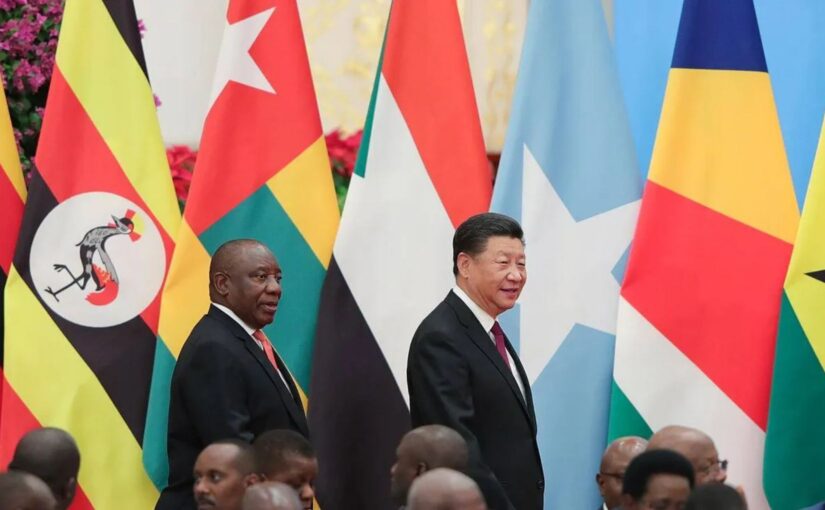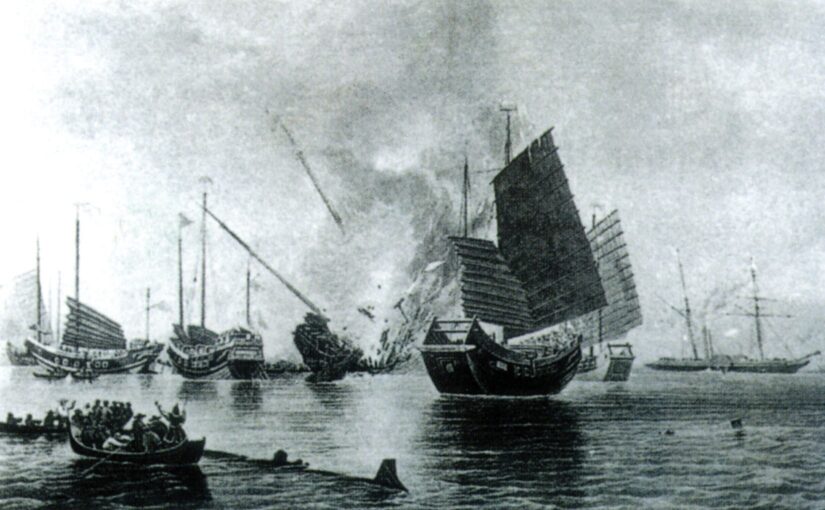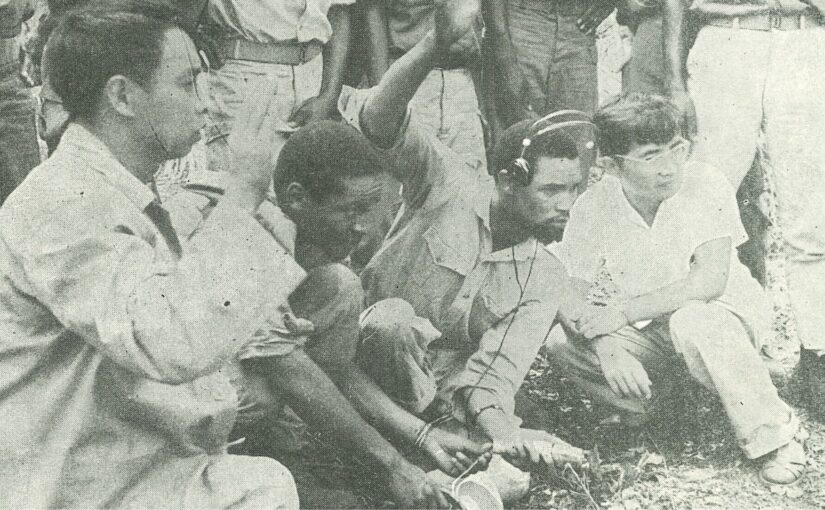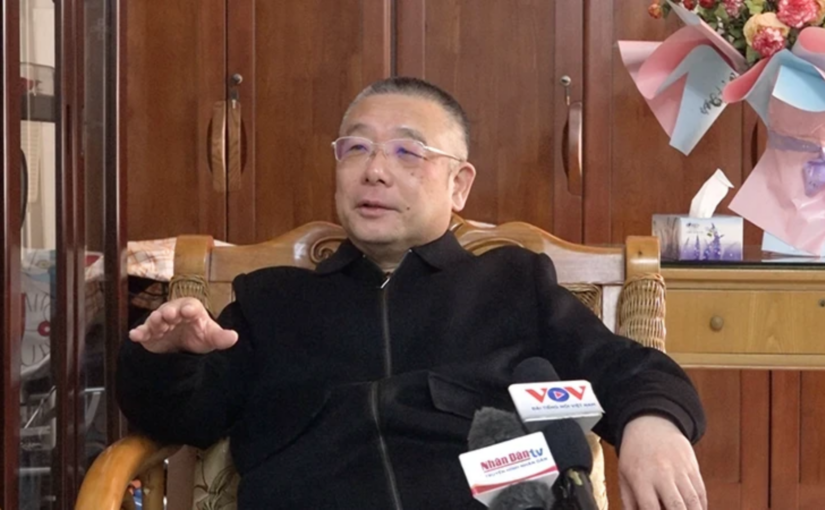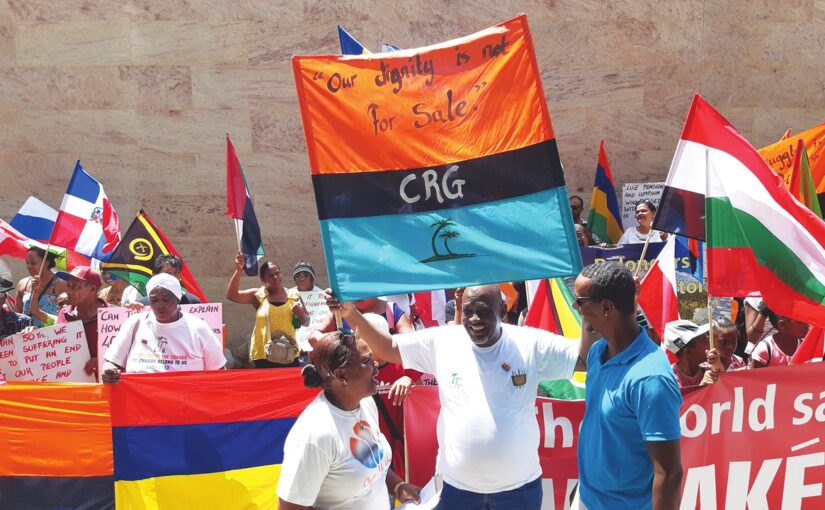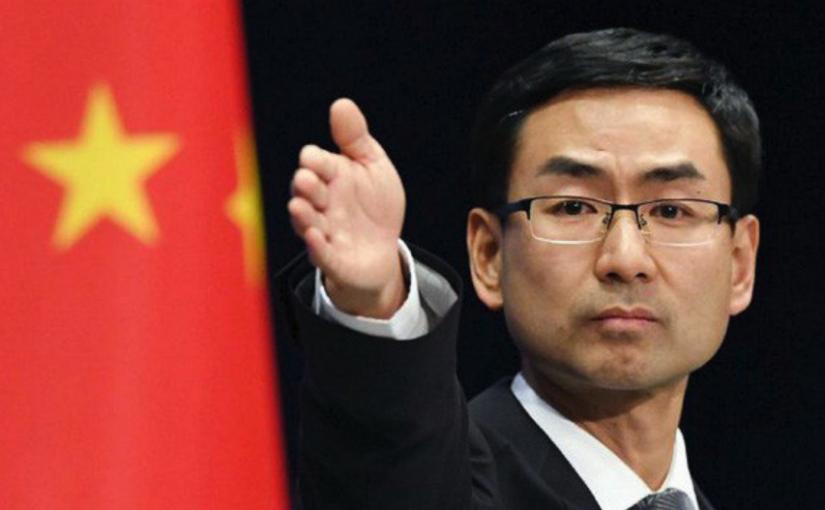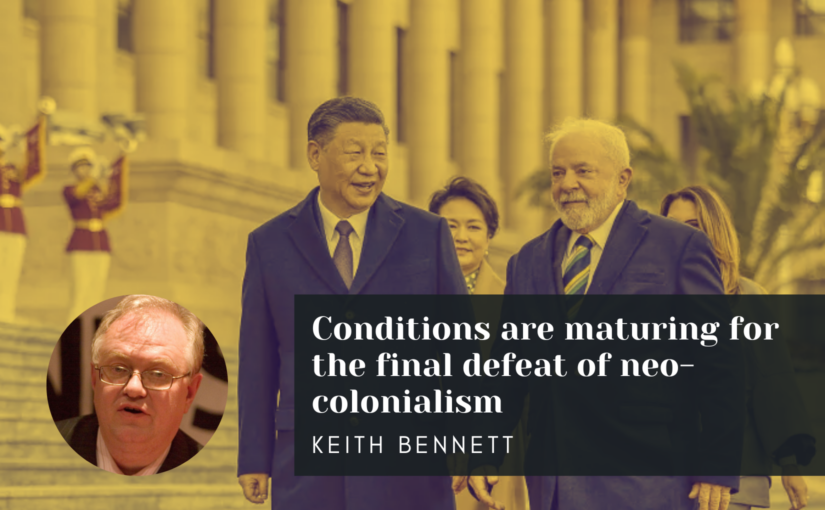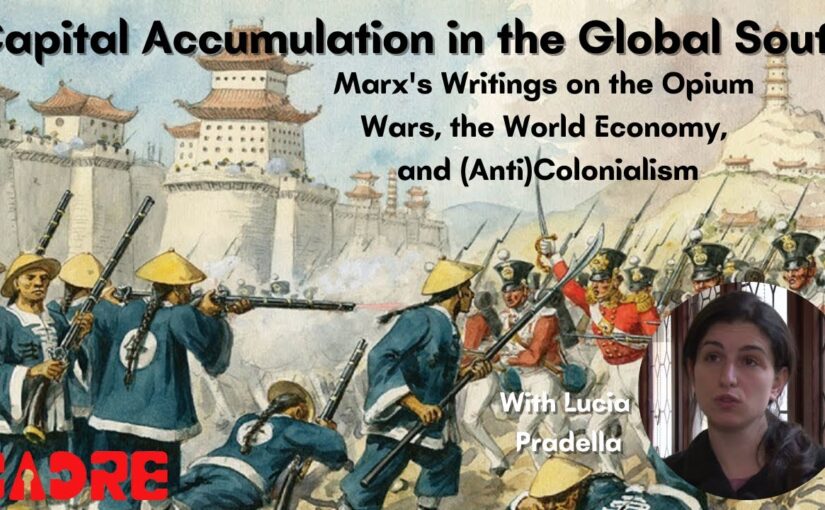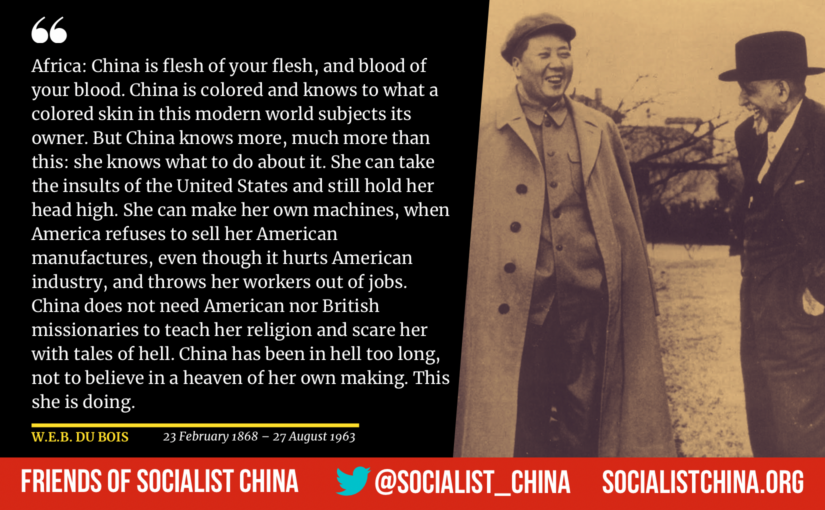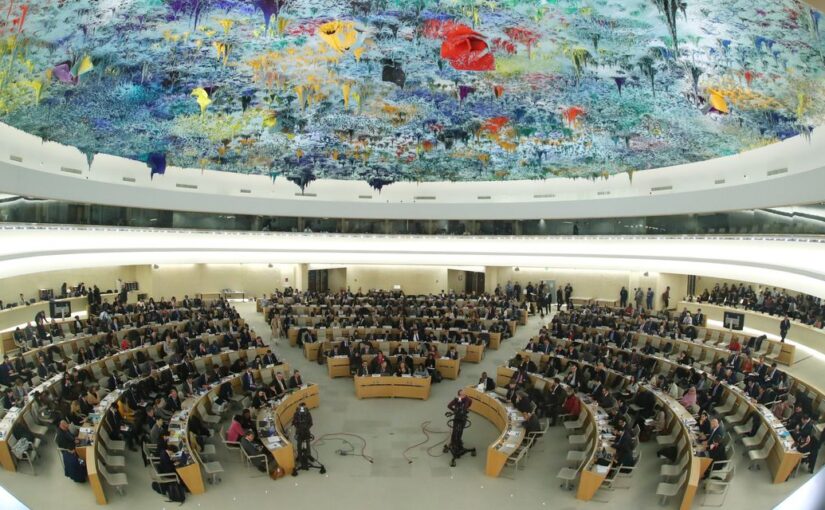The following article, which originally appeared in the Global Times on 9 December 2023, exposes the utter hypocrisy of the US and Britain in relation to their supposed ‘values-based alliance’ and its role in upholding a ‘rules-based international order’.
The article discusses the recent press conference by US Secretary of State Antony Blinken and British Foreign Secretary David Cameron, at which Cameron refused to say whether Britain would return its Chagos Islands colony to Mauritius – as required by international law – and Blinken said that Washington “recognises UK sovereignty” over the territory. As the author points out: “The Chagos Islands do not belong to the UK; they belong to Mauritius. This has been formally determined by a UN resolution and a ruling of the International Court of Justice. It is also the general consensus of the international community and there is no dispute about it.”
Britain split the Chagos archipelago from Mauritius in 1965 in advance of the latter’s independence, essentially so that it could fulfil a promise to lease Diego Garcia – the largest of the islands – to the US as an airbase. Incidentally, this thoroughly unscrupulous act was carried out by Harold Wilson’s Labour government. The approximately 2,000 indigenous inhabitants of the islands were forcibly relocated to Mauritius and the Seychelles.
Mauritius has long fought for the return of Chagos to its sovereignty, and the Chagossian people have long fought for the right to return to their homeland. In 2019, the International Court of Justice ruled that Britain’s separation of the Chagos Islands from Mauritius was illegal, and ordered the UK to return the territory to Mauritius as soon as possible. The UN General Assembly passed a resolution by large majority calling for the same (the only six countries to vote against the resolution were Britain, the US, Australia, Israel, Hungary, and the Maldives).
The author notes that Diego Garcia has become an “‘unsinkable aircraft carrier’ for the US military in the Indian Ocean. It has been used for bombing missions in Afghanistan and Iraq and plays a crucial role in the later-introduced ‘Indo-Pacific strategy'”. Meanwhile, bizarrely, Britain and the US “argue that the island is crucial for the US, so it cannot be returned, and are even suggesting that returning it might benefit China.”
It is clear that these upholders of ‘democratic values’ are only too happy to flout international law in the pursuit of hegemony. As the article rightly concludes, “these new and old Anglo-Saxon empires still persist in attempting to apply imperialistic practices in many international affairs in 2023, treating their self-interest as international norms.”
US Secretary of State Antony Blinken and visiting British Foreign Secretary David Cameron said on Thursday local time in a joint press conference that they had discussed the “vital” US-UK Indian Ocean air base at Diego Garcia. Cameron did not give a specific response when asked if the UK was dropping plans to return the Chagos Islands, of which Diego Garcia is the largest member, to Mauritius, while Blinken said that Washington “recognizes UK sovereignty over British Indian Ocean Territory.”
The word “recognize” here is full of darkness, injustice and irony. This immediately makes people think of the past and ongoing political deals between the UK and the US on the issue of the sovereignty of the Chagos Islands. The deals are extremely dirty and shameful. This is why Blinken and Cameron dare not speak clearly or elaborate.
The Chagos Islands do not belong to the UK; they belong to Mauritius. This has been formally determined by a UN resolution and a ruling of the International Court of Justice. It is also the general consensus of the international community and there is no dispute about it. As early as 2019, a UN resolution required the UK to transfer sovereignty of the Chagos Islands to Mauritius within six months, but the UK has delayed it until today, and it obviously wants to delay it further. In November last year, the UK and Mauritius decided to start negotiations, giving Mauritius some hope, but now various signs indicate that the UK is likely to change its mind again, and the negotiations are turning into a deception.
The Chagos Islands were Britain’s last colony in Africa and seen as the final “holdout” of colonialism. Britain occupied the Chagos Islands for over 200 years, during which illegal and inhumane acts of violence, plundering, and deception against the indigenous Chagossians were rampant. As the outcome of a war between colonial empires, the islands first came under British rule in 1814 after a British-led coalition defeated Napoleon, taking possession of Mauritius, including the Chagos Islands, as colonies. When Mauritius gained independence, Britain attempted to deceive Mauritius into relinquishing its sovereignty over the Chagos Islands, but this ploy was unsuccessful. It was at this point that the US entered the picture.
In 1965, the UK forcefully “acquired” the Chagos Islands. The following year, it transferred the largest island in the Chagos, Diego Garcia, as a “gift” to the US, leading to a grave humanitarian tragedy. In order to meet US military demands to “clear” the islands, the British authorities created an artificial famine by cutting off water and food supplies, prohibiting ships carrying food from reaching the island, and other measures. This forced over 2,000 indigenous people on the island to leave their ancestral homes, fleeing to Mauritius and Seychelles thousands of miles away. Many islanders resorted to suicide. Over the years, the Chagos Islanders and the Mauritius government have continuously sought justice through various avenues, including the British High Court, the European Court of Human Rights, and relevant courts and institutions in United Nations. They have achieved almost every legal victory, including the 2019 UN resolution, but remained limited to this.
After the US established the military base, the situation became even more complex. Diego Garcia Island became an “unsinkable aircraft carrier” for the US military in the Indian Ocean. It has been used for bombing missions in Afghanistan and Iraq and plays a crucial role in the later-introduced “Indo-Pacific strategy.” Some US media outlets even refer to Diego Garcia Island as “one of the most strategically important and secretive US military installations outside the US,” a description that may not be an exaggeration.
Therefore, whether the UK will return the Chagos Islands depends on the US attitude. If the US does not agree, the UK, even if willing, may not dare to return them. However, the reasons given by the UK and the US for refusing to return the islands are peculiar. They argue that the island is crucial for the US, so it cannot be returned, and are even suggesting that returning it might benefit China. This is akin to stealing someone’s belongings and then claiming it’s essential, so the stolen objects cannot be returned. What logic and reasoning is that? In the Chagos Islands issue, both the UK and the US have trampled on human rights, international norms, morality, and international law, subjects that they always talk about.
The US and the UK have one foot in the 21st century while the other remains planted in the 19th century, revealing the true nature of their “values alliance.” These new and old Anglo-Saxon empires still persist in attempting to apply imperialistic practices in many international affairs in 2023, treating their self-interest as international norms. However, they are not dealing with a “weak” Mauritius, but countless awakening developing nations. Fairness and justice are no longer dictated solely by powers like the US and the UK.
